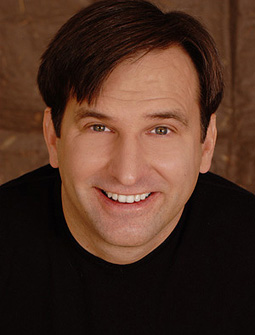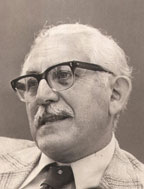By Michael Leibel
In what seemed to contradict the serious, busy attitude of Wall Street, David J. Morrow brought a calm, steady hand and a witty, sharp voice to a then-struggling financial news website and led it to success.
TheStreet.com co-founder and writer Jim Cramer credits Morrow for the website’s turnaround. Not only did Morrow value the input of his readers, he was also able to turn this feedback into news that mattered to his audience.
“He insisted on the highest quality journalism,” Cramer said, “and he always wanted to give the readers what they wanted – actionable, honest news that they could profit from.”
Morrow was born on Dec. 18, 1960, in Spartanburg, S.C. He attended the University of South Carolina School of Journalism and Mass Communications and graduated in 1983 with a bachelor’s degree.
Morrow worked as a reporter for Fortune upon graduating. In a story in 1988, he was tasked with interviewing real estate mogul Donald Trump. In his reporting, Morrow was able to talk his way into pulling Trump’s bizarre hair to see if it was real.
“Squealing ‘Ooooh, you’re bad,’ he will let a reporter tug on his hair to test the rumor that he wears a rug,” Morrow wrote about a usually humorless Trump. “He doesn’t seem to; he does use hair spray.”
In 1993, he worked briefly with the Detroit Free Press as the Japan bureau chief, covering the automobile industry. After his stint in Japan, Morrow became a feature writer and articles editor for Smart Money Magazine.
Toni Simonetti, former executive director of corporate communications for General Motors, remembered Morrow’s thoughtfulness, recollecting advice he gave her in Detroit before she left to work in New York City.
“We had a parting lunch that week,” Simonetti said. “I still have the paper tablecloth upon which he sketched a guide for living in the city.”
Morrow was offered a job with the New York Times in 1996 as a business reporter. There, he covered personal finance, aviation and the pharmaceuticals industries.
In 2001, Morrow was hired by Cramer to become the editor in chief of TheStreet.com. Cramer hoped Morrow would bring the same performance and voice to the website that he did when working for Smart Money.
Earlier in the year, the website had laid off 40 people, roughly 20 percent of its workforce, in a restructuring attempt to reach profitability. In addition to the layoffs, which saw several senior editors and writers being dismissed, Morrow had to deal with the butting personalities of many of the analysts and bring a sense of unity to the newsroom.
“He steered us through some real tough times,” Cramer added.
Morrow undertook several initiatives to improve TheStreet.com. He created a premium section spinoff of the website called Real Money, which featured asset investment advice from well-renowned analysts and portfolio managers. Readers could access this content by paying a monthly subscription fee.
Morrow also created several columns, which gave TheStreet.com a unique, sharp voice. Among them, “The Five Dumbest Things On Wall Street This Week,” became a reader favorite. The weekly feature ridicules the stupid and sometimes insane actions of Wall Street and corporate America.
Another column, “Mutual Monday,” gave readers an in-depth look at decisions made by fund managers. The daylong event also gave advice on funds to buy and sell, as well as interviews with leading fund managers.
“People like a little levity with their business news,” Cramer said when asked why he believes the columns became so popular. “Dave got that.”
Inside the newsroom, Morrow was able to get his writers to believe in the website. People began to have fun. Morrow’s leadership gave staff a sense of trust in the organization and allowed him to hold writers to higher standards.
And this effort produced results. TheStreet.com reported its first profit in 2005, partially due to the new content that attracted readers to the site. A year later, “The Five Dumbest Things On Wall Street This Week” won SABEW’s Best in Business Award in the column category.
Under Morrow’s guidance, TheStreet.com became a trusted and reputable financial news source. During his tenure as editor in chief, TheStreet.com won five SABEW awards, one Loeb award, two New York Press Club awards and four awards from the Media Industry Newsletter, in addition to numerous nominations. Morrow also received MIN’s Best Editor of a Web Site Award in 2007.
Morrow ended his position with TheStreet.com and became the first Donald W. Reynolds endowed chair in business journalism at the University of Nevada-Reno in the summer of 2009. Shortly after, Morrow died of pancreatic cancer at the age of 49 in 2010.
Morrow’s legacy continues to live on, however. In honor of his contributions to business journalism, the University of South Carolina, with the help of SABEW, created a fund that supports undergraduate or graduate students interested in business journalism.
It will be hard for any business journalist to follow Morrow’s act, which brought humor, wit and, most importantly, fun to Wall Street.
Michael Leibel is a business journalism major from Chapel Hill in the Class of 2014 at the University of North Carolina at Chapel Hill.


